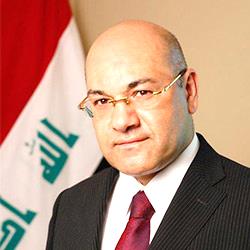 2025 / 16 / Feb
2025 / 16 / Feb
Given the challenges facing Iraqi think tanks and research centers, the need for a regulatory framework that enhances their independence, ensures their transparency, and increases their influence on decision-making has become urgent and pressing. This paper aims to provide a comprehensive vision on how to develop this sector through a voluntary code of conduct that sets professional and ethical standards governing the work of these centers, while maintaining their scientific and administrative independence.
The paper addresses the challenges facing Iraqi think tanks, as these institutions suffer from weak funding, the absence of a clear legal framework, limited or weak influence on public policies, and political interference. In addition, the culture of scientific research and sound decision-making based on evidence and effectiveness remains limited, making the role of these centers less effective compared to their counterparts in other countries (democratic or non-democratic).
This paper presents a comparison between international models in organizing think tanks, by reviewing experiences in countries such as the United Kingdom, Germany, Japan, and the United States, where the nature of the relationship between think tanks and governments differs. In the United Kingdom, think tanks are registered as charities subject to the supervision of the Charity Commission to ensure their transparency, while in Germany, some centers are funded by political parties and are subject to strict financial review by regulatory authorities. In Japan, most think tanks are managed with private funding or in partnership with universities, while American centers rely on a combination of private funding and research contracts with the federal or state government.
Based on these experiences, with which I have directly interacted, we propose in this paper, written from the perspective of a practitioner, a flexible framework for institutionalizing Iraqi non-governmental think tanks, so that they are organized within a voluntary code of conduct that allows these centers to operate within clear standards of transparency, independence, and cooperation, without imposing legal restrictions that impede freedom of scientific research. It also calls for the launch of a national fund to support scientific research to ensure the sustainability of funding, in addition to strengthening partnerships between think tanks and the public and private sectors.
The paper also presents a vision for the mechanisms for implementing the code of conduct, where the first phase begins with reviewing and adopting the final version of the code, organizing introductory workshops to ensure that research institutions understand its standards, and then moving to the signing phase by the interested centers. After that, an independent supervisory committee is established to follow up on the implementation of the code, and develops a system to assess the extent of the centers' commitment to it, so that it submits periodic reports reviewing the successes and challenges facing its implementation. In later stages, work is done to expand the adoption of the code, and to ensure the provision of sustainable funding sources, allowing think tanks to operate freely and efficiently without financial or political pressure.
The paper concludes that adopting the code of conduct is not just a regulatory procedure, but an essential and necessary step towards establishing a culture of scientific research and enhancing the confidence of the public and decision-makers in Iraqi think tanks, and the same towards the relationship of research centers with politicians. Through this initiative, these centers can become a major partner in shaping public policies, and contributing to the production of sound research and analysis that helps Iraq face its economic, social, and political challenges.
Based on this, the paper calls on Iraqi think tanks, in addition to the relevant academic and governmental institutions, to engage in a joint discussion on adopting and developing this code, so that it reflects the needs of the Iraqi reality, and ensures a more sustainable future for intellectual research institutions.

Writer and author